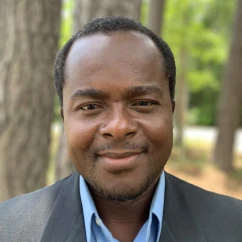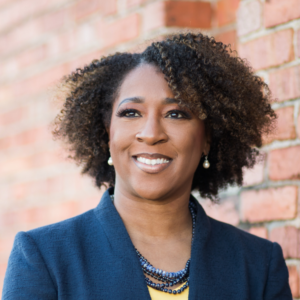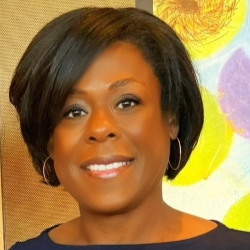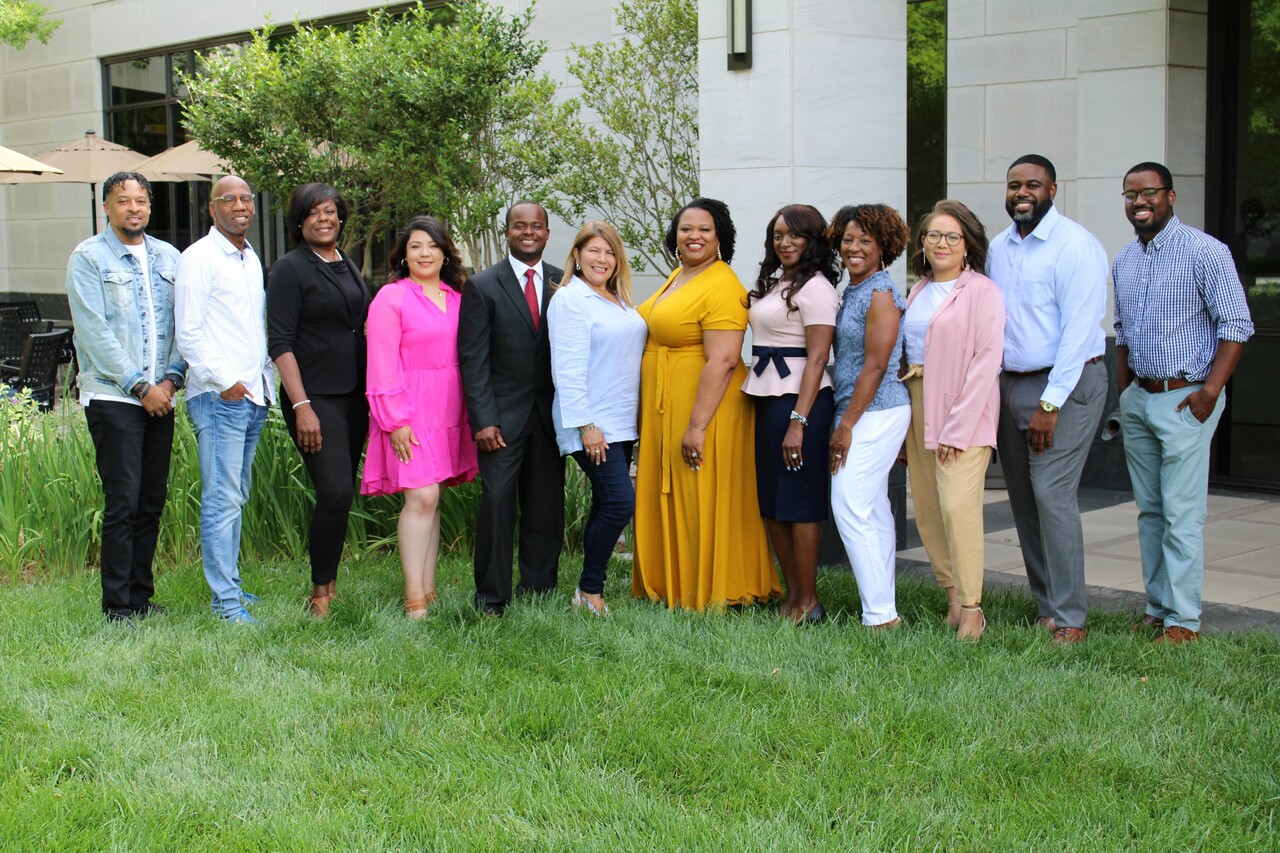By Giany Guedjo, Jovonia Lewis, ReZsaun Lewis, and Angela McDuffie, alumni of the Investing in Leaders of Color (ILOC) Fellowship
How Funders Can Better Support Leaders of Color and Their Communities
As leaders of color, we understand firsthand the challenges and opportunities in seeking support from funders. Disparities in funding, highlighted by statistics showing that White-led organizations often receive significantly more resources, underscore the need for funders to prioritize equity in their strategies. For example, a study found that White-led organizations had budgets that were 24% larger than those led by people of color. Additionally, the unrestricted net assets of Black-led groups were 76% smaller than those of White-led groups.
Funders must move beyond traditional funding models and adopt a more collaborative and equitable approach to effectively partner with communities of color. The Investing in Leaders of Color (ILOC) initiative was designed to create a space where leaders of color could co-design programs, articulate their needs, and build authentic partnerships with funders.
The inaugural ILOC cohort included five leaders who co-designed the content and structure of the fellowship with funders, and seven leaders who were selected to join those initial leaders in participation in the year-long fellowship. This approach emphasized the importance of lived experiences and the need for genuine collaboration, ensuring that the voices of leaders of color were heard and respected. Philanthropic partners engaged the cohort in collective learning, mutual mentorship, and relationship-building throughout the fellowship.
How Community Leaders of Color Are Working to Build Power and Voice
Throughout our fellowship experience, we focused on building power and amplifying our voices through various strategies. As a cohort of leaders of color, we benefited from MDC’s creation of a space for trust, introspection, growth, and empowered, shared leadership. This environment enabled us to form authentic relationships with each other and some of the funding partners, which led to ongoing collaboration and power-building.
Unfortunately, trust was not fully established with our intended funding partners after the fellowship was designed; this became especially apparent during times of crisis. Following the Supreme Court’s decision against affirmative action at higher education institutions, the funders began reassessing their liability in continuing the program as originally planned. Several conversations ensued between funders, nonprofit leaders, and attorneys to identify potential problems and solutions. During these conversations, the nonprofit leaders expressed that the proposed changes did not reflect the true intentions of the fellowship, especially without the explicit centering of racial identity.
Although the funders felt that they advocated for the leaders of color in those conversations, how the funders decided to move forward fundamentally shifts the intent of the fellowship and damages the commitment to move philanthropy away from traditional responses to risk. As a result, the ILOC Alumni are re-evaluating our commitment to the new version of the fellowship that the funders may explore.
Even though the program in its original form ended after its first year, the nonprofit leaders of color from this cohort continued to build power by collaborating on projects, supporting each other’s events and fundraising efforts, and sharing funding resources and opportunities. While the program’s discontinuation was painful, we take immense pride in being part of such a revolutionary and forward-thinking design. Through ILOC, we forged relationships and networks that are invaluable, inspiring, and supportive as we continue our efforts to advocate for our communities. It has also reaffirmed the lesson that philanthropy prioritizes what it wants and not what communities need.
When a dedicated cohort of nonprofit leaders is empowered to disrupt the status quo and face adversity head-on, funders must seek to deeply understand and wield the power they have by:
- Acknowledging Disparities and Committing to Change: Recognize the historical traumas and inequities affecting communities of color. Look for ways that each side (funders and grantees) can align to show strength externally and support each other internally. Move away from words and terms to values and how they show up in the work and grants.
- Intentional Conversation: After recognizing disparities, funders need to be bold enough to carry the conversation to their peers and implement a strategy impacting systemic change. Fight, be loud, and join with others to make change happen.
- Renewed Commitment: We need a racially just society. As a result of the SCOTUS decision, philanthropists need to stand together with those most imperiled by this decision, particularly in the South.
- Intentional Investments: Ensure resources are directed towards your values, especially initiatives that are designed to elevate organizational leaders with lived and/or cultural experiences similar to those being served and who are trusted by communities that have been strategically undervalued.
- Equitable Investments: Level the playing field to elevate organizations to the same standards and funding allowed for organizations that have been historically funded by your foundation.
- Platform for System Change: Provide opportunities for leadership development, advocacy, and policy influence.
- Multi-Year Funding: Commit to large, multi-year funding to create sustainable change.
- Partnership Fundraising: Encourage collaboration through community mobilization and risk-sharing strategies.
- Board and Funder Leadership Conversations: Ensure a diverse, inclusive Board with training and practices for authentic community transformation. Foundations need to have a crisis plan to support and prepare their board, staff, funders, and community after assessing their risk of lawsuits, trolls on social media and actual violence and prepare accordingly.
- Transparency: Increase transparency around foundation grantmaking decisions by developing – and sharing – the funding rubric that aligns with your values.
Funders must move beyond traditional funding models and adopt a more collaborative and equitable approach to be effective partners with leaders of color. Relationship building, networking, and authentic engagement are pathways to transformative change.
The inaugural and only ILOC cohort continues to build power and voice within our communities, hoping that future initiatives will address past shortcomings and provide even more significant resources to leaders of color. Funders can be better partners by embracing equity, intentionality, and collaboration, enabling us to serve our communities through sustainable and impactful ways informed by our lived experiences.

Giany Guedjo, originally from Benin, West Africa, moved to the U.S. in 2009 and became a citizen in 2014. He holds a Bachelor’s Degree in Economics, a Master’s in Organizational Management, and an MBA from Webster University. Giany became Executive Director of Carolina Human Reinvestment (CHRSC) in 2012, where he has led programs that serve thousands in Georgetown County, SC. He is a graduate of the Georgetown Leadership Program and the American Leadership Forum. A dedicated community leader, Giany was recognized as a Melvin Jones Fellow by the Lions Club International Foundation for his humanitarian service. He enjoys traveling and spending time with his family.

Jovonia Lewis is the founder and executive director of Empowered Parents in Community (EPiC-NC). Her experience and passion for education, empowerment and social justice led her to create EPiC, a parent collective working for equity in the NC school system. EPiC’s mission is to dismantle systemic racial inequities through collective organizing and intentional engagement of Black parents and communities. The EPiC team is community rooted and authentically engaged—offering education opportunities, racial equity conversations, and forums to hold school systems accountable through programming and advocacy. Jovonia has a bachelor’s degree in Psychology from the University of North Carolina in Greensboro. She has a masters and education specialist degree from Georgia State University. Jovonia is also a nationally certified and licensed clinical mental health counselor.

ReZsaun Lewis is the Executive Director of Lowcountry Youth Services, where he has significantly expanded programs, serving over 450 youth annually. With a background in education and non-profit leadership, he has transformed the organization from a volunteer-based effort to a staff-led operation. ReZsaun is a U.S. Army veteran, holding a Master’s in Public Administration from the College of Charleston. He is passionate about youth development, community empowerment, and helping underserved populations thrive. Additionally, he co-hosts the Pursuit of Forever Podcast, a marriage counseling ministry. His leadership continues to make a profound impact on the Lowcountry community.

Angela McDuffie is the Chief Executive Officer of Midlands Fatherhood Coalition (MFC), she governs operational and programmatic services and ensures fidelity for this organization. MFC’s goal is to help men in our communities to become great dads. MFC provides holistic services that help connect fathers to the resources they need so they can meet their responsibilities and secure their parental rights. Angela is a graduate of the University of South Carolina with a Bachelor of Arts Degree in Psychology and Webster University with a Masters in Counseling. She is a trained family Court Mediator for the State of South Carolina and received her certification for non-profit management from Winthrop University in 2019. Angela is happily married and is the proud mom and bonus mom of three.
Banner image: Investing in Leaders of Color (ILOC) Fellows at the fellowship kickoff in June 2022.



